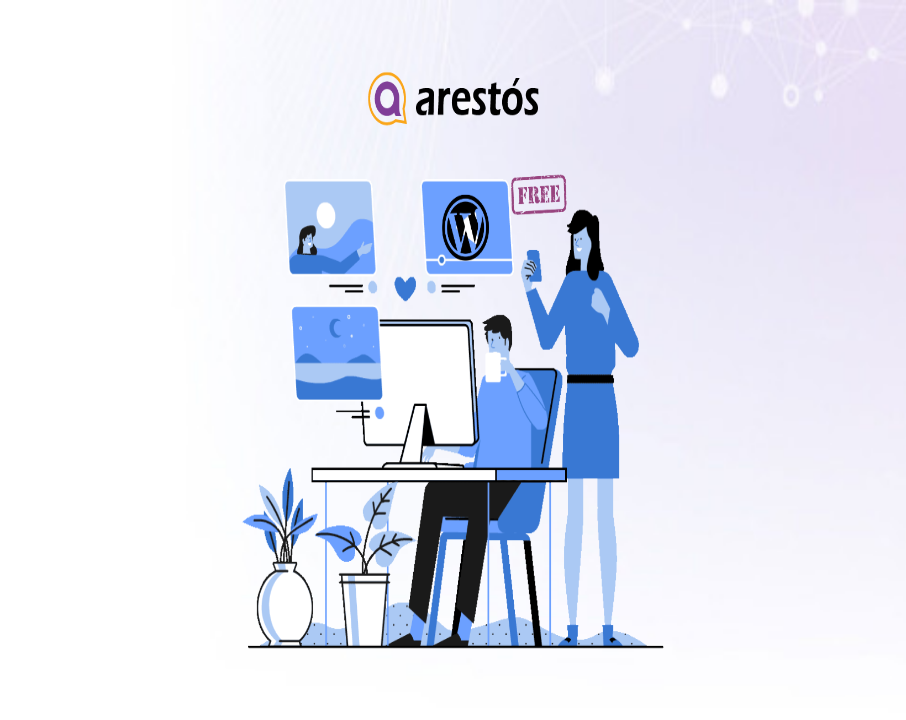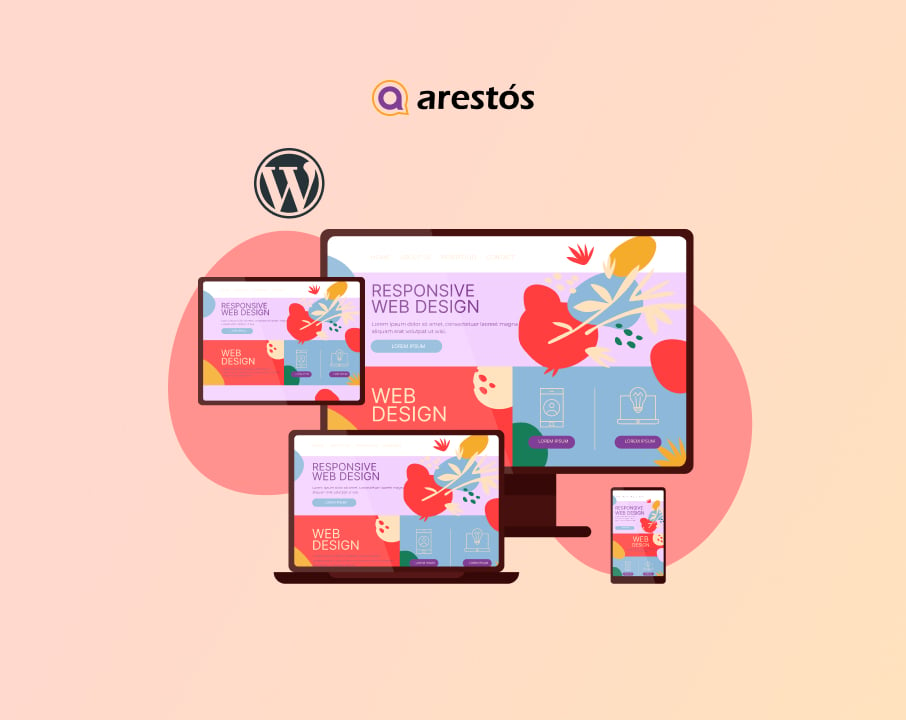Is WordPress free platform? Can I Create a Free WordPress Blog/Site?
The fact that WordPress is open-source software is one of the reasons for its popularity. The answer to the question "Is WordPress free?" is yes. However, there are some hidden costs associated with setting up and running a website.
The fact that WordPress is open-source software is one of the reasons for its popularity. The answer to the question “Is WordPress free?” is yes. However, there are some hidden costs associated with setting up and running a website.
Arestos will definitively answer the question “Is WordPress free?” in this article. We’ll walk you through WordPress’ hidden costs and show you how to set up a website for the least amount of money. Let’s get the calculator out!
Is WordPress free?
WordPress is, in essence, completely free. However, there are some significant points to consider.
The WordPress software is entirely free, and users are free to use it on their websites. On the other hand, they must still host their website with a web hosting company, obtain a domain name, and deal with the rest of the costs associated with website ownership.
As a result, you will not be able to run a WordPress site for free. WordPress, to use an analogy, is like a free car. Even though the car itself is free, you will have to pay for fuel and maintenance.
Can I Create a Free WordPress Blog?
This brings us back to our earlier discussion of the distinction between WordPress.com and WordPress.org. While you can blog freely on WordPress.com, you cannot do so by using WordPress as the CMS itself. You’ll still need a website to do so.
However, hosting and domain registration costs are very low these days, so you can get a site for very little money. You can save money on your WordPress site by using free WordPress themes and plugins. This can easily reduce the cost of maintaining your website.
What Else Is Available for Free in WordPress?
WordPress is not the only free software available. With its open-source nature comes additional community contributions to improve the CMS as a whole, in the form of free plugins and themes.
Users are constantly creating amazing free content to benefit the community. Some people consider it a source of income and offer professional services as well as additional features for a set fee.
But the bottom line is that you can freely add functionality to your website or change its appearance without spending a single penny.
Let us highlight each of these aspects of WordPress’s free nature:
Free Themes
WordPress users can use free themes to improve the appearance of their websites. These can have a variety of layouts, color schemes, additional theme features, parallax effects, and other features.
Examples: Zakra is becoming a better option for users by the day, with more and more theme developers creating great free themes.
Free Plugins
WordPress can always incorporate new features that users will appreciate. WordPress has you covered when it comes to SEO optimization tools, form builders, site security, image optimization, social media tools, and everything else. Using a plugin is an easy option for WordPress users because there are tools for almost every purpose.
Examples: User Registration – Using the User Registration plugin, you can create a beautiful login and registration form.
Free Updates
It is critical to emphasize that WordPress intends to remain free in perpetuity. As a result, any major updates to WordPress are obviously freely distributed to all users. You’ll never have to worry about your WordPress installation not being able to be updated again.
Updates are an essential component of any software, and WordPress distributes all updates to all users without distinction.
Three free WordPress features with potential hidden costs
Aside from hosting and a domain name, three factors can affect the cost of your WordPress website:
Plugins
If you visit WordPress.org right now, you’ll notice that there are thousands of free plugins available. Unless you’re looking for incredibly specific functionality, we’ve found that a free plugin will usually suffice:
It’s worth noting, however, that many of those plugins are free versions of premium tools, and they don’t have all of the functionality that their siblings do. In some cases, the premium versions are worthwhile if you require access to features that you would not otherwise have.
When looking for premium plugins, you’ll notice that many of them are priced between $20 and $30 for a yearly license:
It is not uncommon for some websites to employ dozens of plugins. Paying for so many premium versions can quickly add up to hundreds of dollars. Fortunately, it’s rare that you won’t be able to find a free plugin to do the job. In general, we recommend reserving your budget for other aspects of website management.
Themes
When it comes to WordPress themes, you have thousands of free options, just like with plugins. Whatever type of website you have, chances are you can find an excellent free theme:
However, the more functionality you require from your theme, the more difficult this becomes. Some of the most popular themes include robust page builders, a plethora of pre-built pages, and other free assets.
If you’re new to website development, purchasing a premium theme is usually your best bet. You should prefer one that gives you access to features that make building a website easier.
The downside is that premium licenses for themes tend to be a bit more expensive than with plugins. For a popular theme, you might expect to spend around $60:
As we discussed before, that money usually gets you access to automatic updates and support from the developers. With that in mind, you’ll want to make sure you choose a theme that gets regular updates and has an active community.
Professional development and support services
If you’ve used WordPress before, there’s no reason you should have to pay for professional development or support. However, if you encounter technical problems that you cannot resolve on your own, you may need to open your wallet.
According to Upwork data, developers typically charge between $30 and $75 per hour for custom WordPress work. However, keep in mind that platforms like Upwork tend to skew rates toward the lower end of the scale.
That means that if you ever need to hire a professional developer for custom work or troubleshooting, you could be looking at hundreds of dollars in additional costs.
Conclusion
Arestos hope this article provided you with some valuable insight into the free and open-source nature of WordPress and what it means for you. If there’s anything we can help you with, feel free to comment. Keep the discussion going down below!
You can also follow us on social platforms: Linkedin and Facebook, to get notified of every new article we publish on our blog page.



